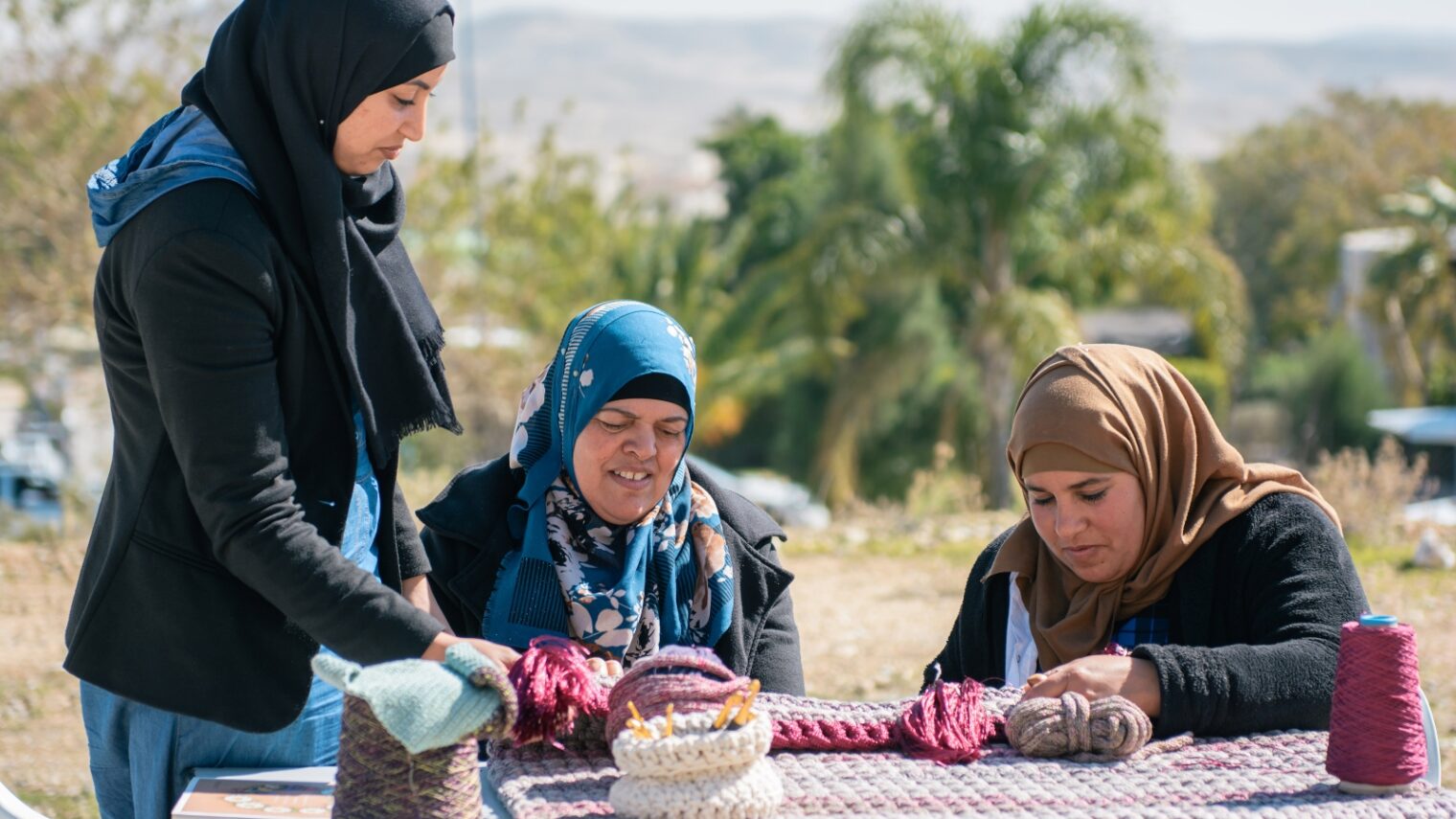In traditional Arab Bedouin society, women are restricted to home with few opportunities for earning money. For 15 women from the southern Israeli Bedouin town of Hura, a social business called the Iota Project is opening a window on a better future for them and their families.
“One woman told us her son is going to university because of Iota. She said it’s not just because of the money she earns but also because the fact that she’s working gives her a voice in household decisions,” relates Tal Zur, creative director of the Iota Project.
The women learn how to crochet unique elements used as building blocks for seating, rugs, swings and decorative baskets sold to homes, hotels and businesses.
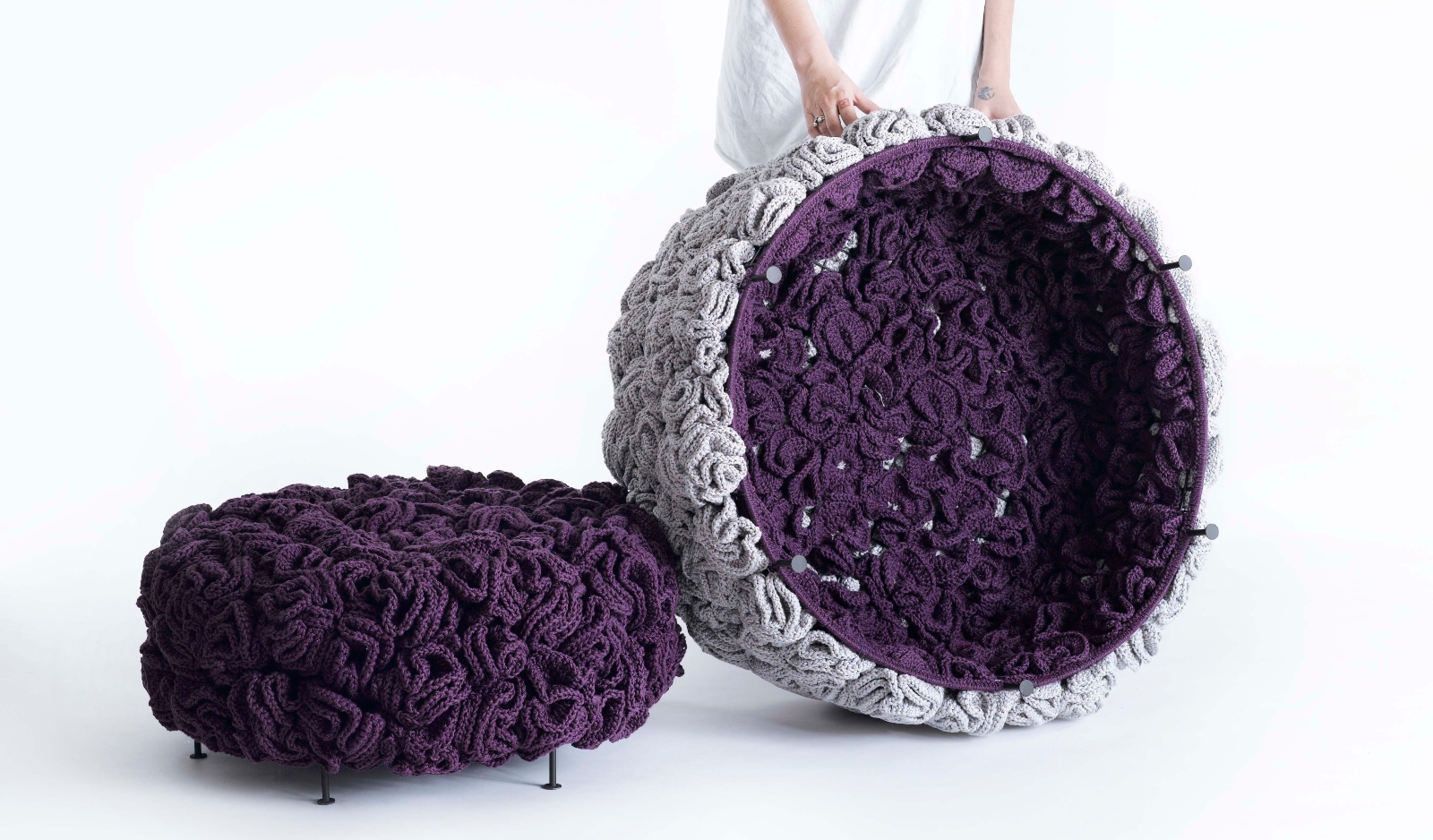
Israeli philanthropist Shula Mozes started with the aim of establishing a movement for unemployed women around the world. She asked Zur, an industrial designer, to help her pinpoint a skill women could learn in order to earn a fair wage working from home.
Zur decided crocheting would be perfect. This craft is guided by an international “language” similar to musical notes and requires no equipment other than yarn and a needle.
But what would the women crochet? During a trip to Boston, Zur was wowed by a fiber-art exhibition of large-scale textile objects.
“I was so excited! I came home and told Shula, ‘I don’t know what you had in mind, but I don’t want these women to crochet baby booties.’ Shula flew to Boston to see the exhibit and said,‘Let’s do it,’” Zur tells ISRAEL21c.
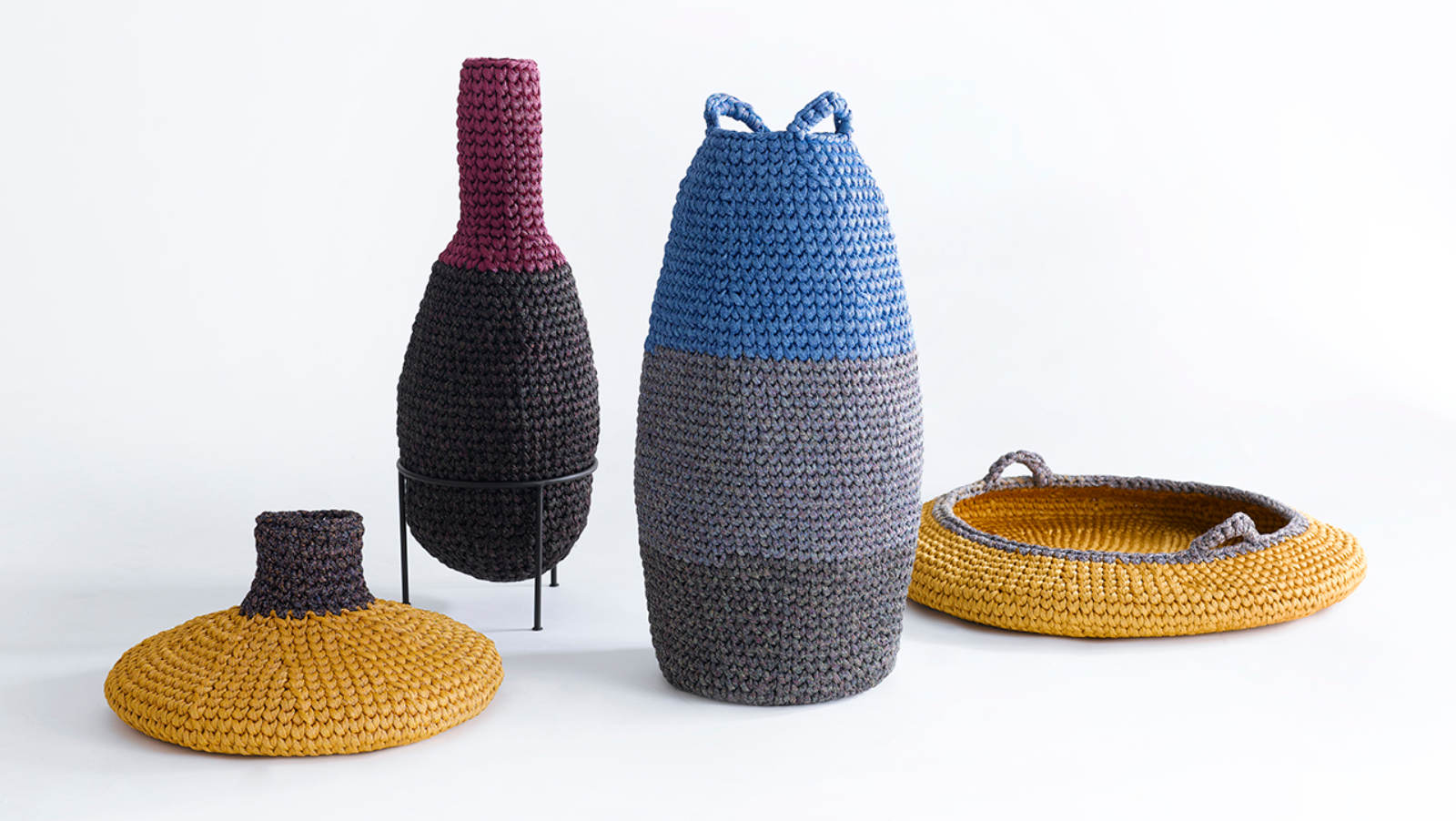
Zur and Mozes went looking for Israeli women of any ethnicity willing to make a long-term commitment to the Iota Project in return for salary and benefits.
Through a Facebook friend, Zur connected with Muhammad al-Nabari, the famously forward-thinking former mayor of Hura.
“He said he would help make it work if I promised to provide steady employment so the women could trust us. They’ve been promised many things and have often been disappointed,” Zur explains.

Every week, Iota staff member Iris Dayan Moalem goes to Hura to bring supplies, provide guidance on Iota’s special technique, and pick up finished pieces for assembly at Iota’s studio. Currently the program employs five fulltime and 10 part-time, from age 30 to 65.
Spreading to other countries
Less than five years after the Iota Project was launched, it’s already growing beyond Israel.
About 20 Syrian refugee mothers in Istanbul are working with Iota, supervised by a local philanthropy. Zur is seeking partners to help set up and supervise Iota communities in Peru or Colombia.
Iota, Latin for “bit” or “segment,” refers to how the products are constructed and to how the project improves lives, bit by bit.
“Social businesses have a circular economy; all the income Iota earns is being invested in Iota and other social projects,” says Zur. “But there is another kind of circular economy in how the project can lead to advances for women.”
The women can use their newfound skill for their own creative purposes: one participant crochets pillows and rugs for her family using a “yarn” she makes from shredded old t-shirts.

The money they earn buys them a measure of independence as well. “One woman told us she earned enough to buy beds for her two daughters and even chose them herself,” says Zur.
There are other ripple effects. For example, while Bedouin wives seldom socialize with women other than their sister wives, Iota workers have a weekly social outlet with one another.
Some effects will take longer to see. The Iota employee’s son starting university in nearby Beersheva may one day return to Hura with a different outlook on women. Maybe he will choose to marry only one wife and maybe he will let her get a job or a driver’s license.
Zur stresses that all participants’ husbands are supportive of their wives’ employment with Iota. “We’re not judging their lifestyle. We just try to understand what they need and how we can help.”
Handmade items are hot
Inspired by nature’s colors and structures, Iota items each incorporate hundreds of crocheted flowers made of bespoke yarns spun in a small factory in Tel Aviv.
“These special yarns become part of our story and allow us to do a lot of custom work from yarn to final product,” says Zur.
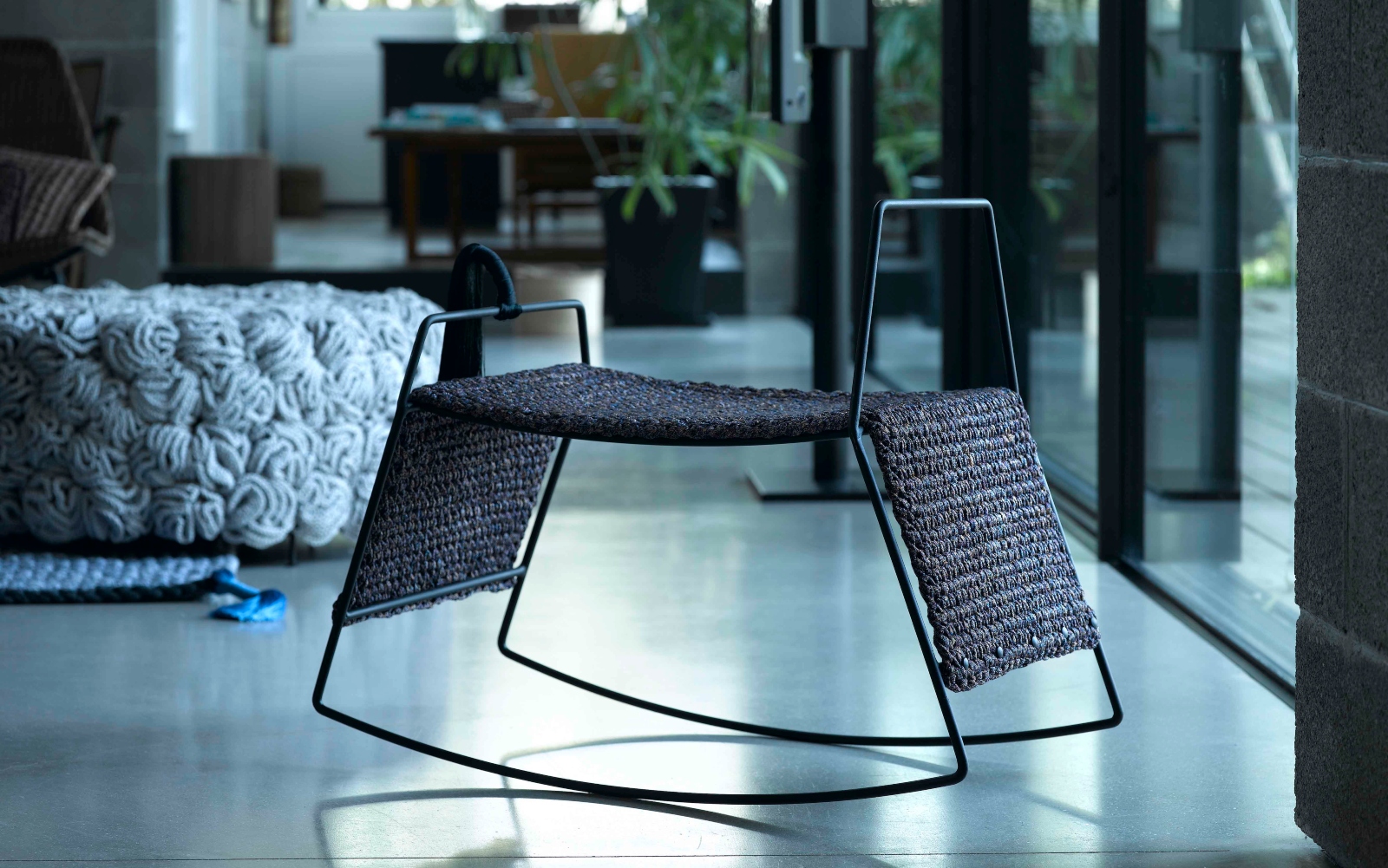
ISRAEL21c recently visited Iota Project’s new showroom during a TLV Style fashion tour with Galit Reismann. The studio, officially opened September 10, is in an arched stone building in the Old City of Jaffa at 12 Hatsorfim Street.

Seated on a colorful crocheted pouf, Iota head product designer Noa Curiel told us it didn’t take long for the unusual, eye-catching creations to attract attention.
At the Maison & Objet international trade fair in Paris, project leaders met the textile designer from Peugeot. That led to a handmade Iota carpet gracing the floor of Peugeot’s autonomous concept car displayed at the 2017 Geneva Motor Show.
“It really excited us that our gut feeling is true: Handmade items are always in fashion and will not pass from the world even though everything is so industrial. People still value an object that is made by someone and has a life,” says Curiel.
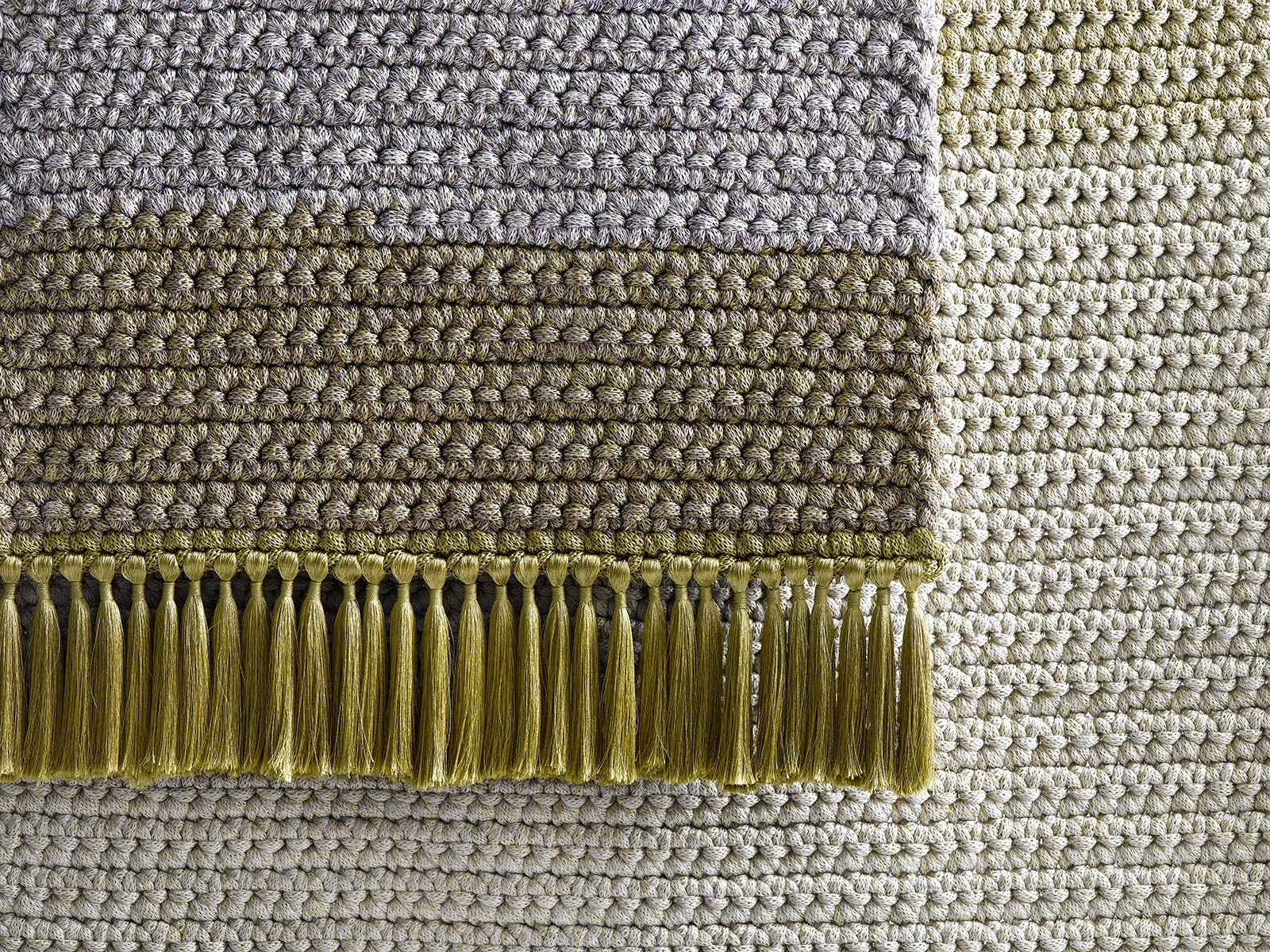
For Jerusalem Design Week in 2017, Iota designed a site-specific “textile forest” at arts center Hansen House, commissioned by the Israel Museum. In April 2017 and 2019, Iota was chosen to participate in the Salone Del Mobile design show at Milan Design Week. Iota was among brands featured in British lighting and furniture designer Tom Dixon’s Galleria Multiplex in Milan in 2017.
“Tom told us that in the future of design, people want things made ethically,” Curiel tells ISRAEL21c.
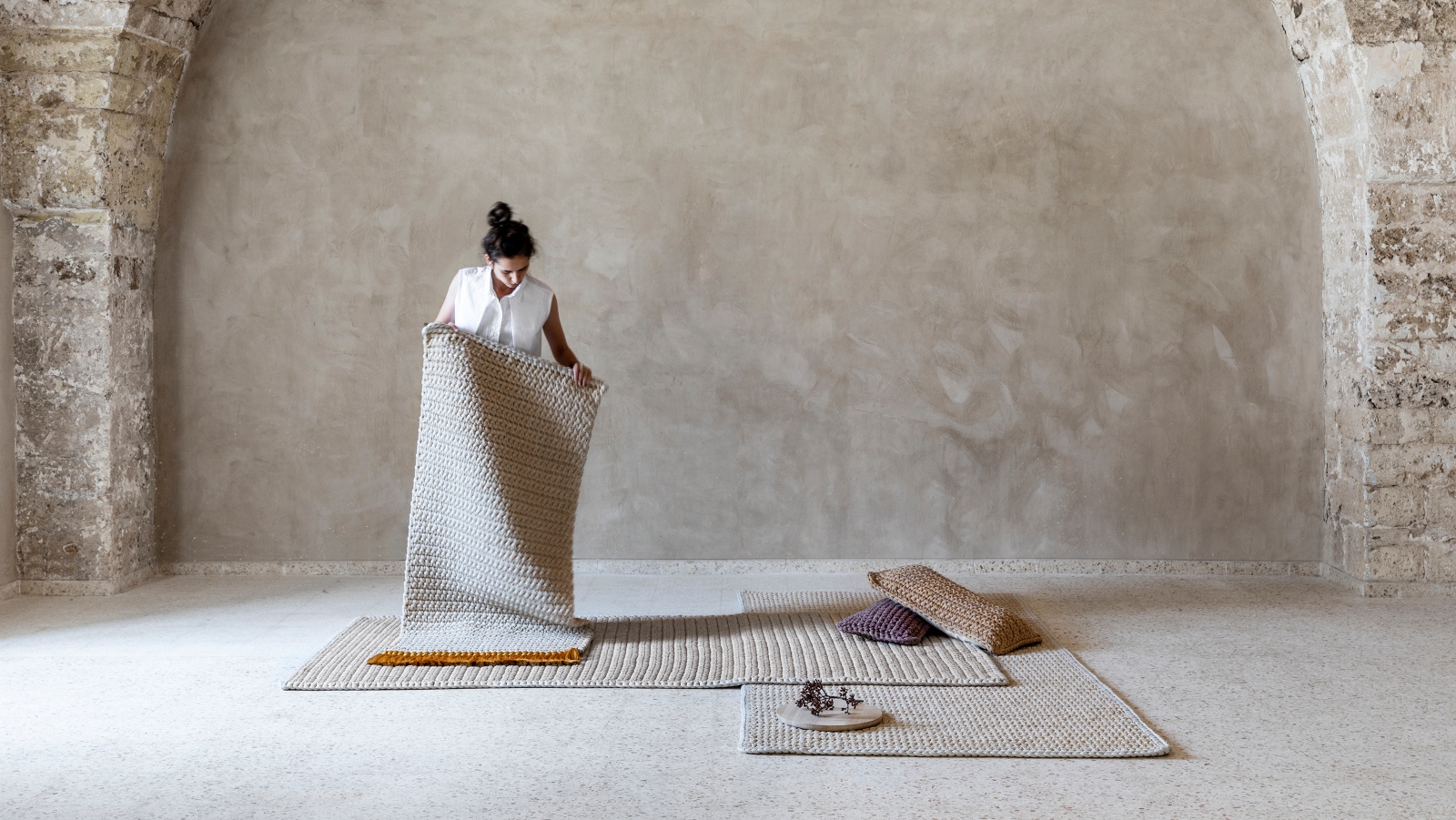
You can find Iota designs decorating such hotels as Six Senses in Ibiza. “We work with interior designers and architects for residential and commercial projects all over the world,” says Zur.
Iota products can be purchased at the studio, on the 1stdibs website and in about 20 stores in Europe.
For more information, click here




